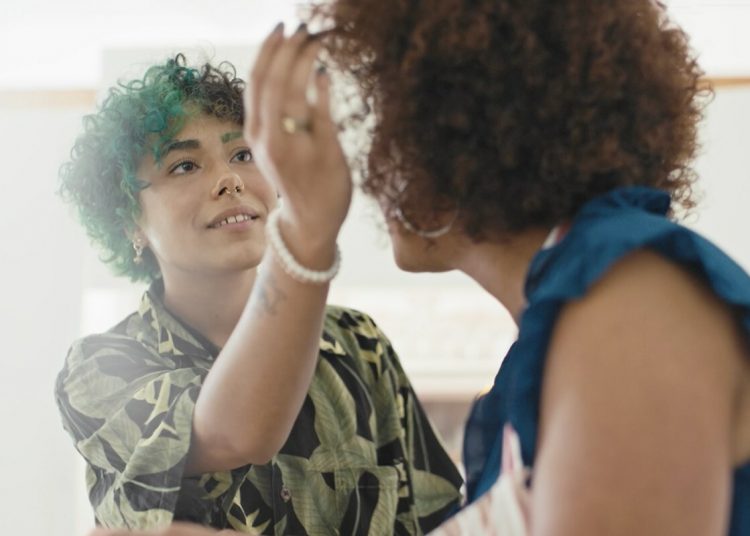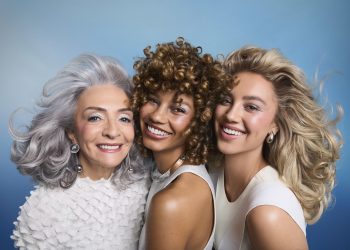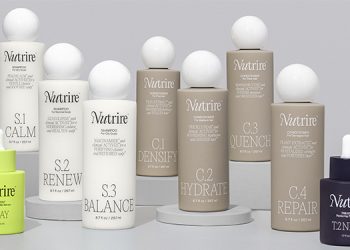Nutrafol, the leading brand reshaping the category of hair health, unveiled new research highlighting the prevalence of hair thinning in women and the emotional impacts it can have as part of its ongoing mission to destigmatize an issue that affects so many. The research, conducted by OnePoll on behalf of Nutrafol, was launched to mark Hair Loss Awareness Month in August and seeks to examine how female hair struggles and other wellness concerns can extend beyond physical effects, to feelings of embarrassment, self-doubt and loss of confidence.
According to new research, almost one-third of women have never told anyone about worrying physical issues. When asked which issues they are most uncomfortable with, weight issues (23%) and hair thinning (23%) tied for the number one spot. Of those women who have experienced thinning hair, many reported feeling sad (46%), embarrassed (43%) or even scared (42%).
“More than half of women will experience hair thinning during their lifetime1, and for years we have been hearing from our community about the emotional toll this was taking on them – but until now, it had not been quantified nor formally recognized by society,” said Giorgos Tsetis, Nutrafol co-founder and CEO. “Now with this new data, we can further shine a light on the prevalence of this issue and put real numbers behind the broader impact that hair thinning can have. This is an important next step in our ongoing journey to destigmatize the conversation and let women know they are not alone.”
Hair thinning has crippled many, with women reporting negative impacts on their self-confidence (45%), professional career (33%) and even their personal relationships (30%). The effects of hair thinning run so deep that women also reported no longer feeling like themselves (39%) or even feeling less like a woman (32%).
“Physical changes are a natural part of the aging process, but for many women, this can cause new insecurities related to appearance or anxieties around not feeling like themselves,” said Board Certified Dermatologist, Dr. Michelle Henry, MD. “I commonly see patients who are experiencing hair thinning and are unsure how to address it, or where to turn to for support. It can be an incredibly isolating experience.”
Women in different life stages shared different attitudes and beliefs around hair thinning. Millennials were more likely than any other generation to not like talking about their hair thinning with other people (44%, compared to 37% of Gen X and 36% of baby boomers). They were the most likely to say their professional career has been impacted by their hair thinning (41%, compared to 27% of Gen X and 11% of baby boomers).
Two-thirds of respondents agree that on any particular day, the way their hair looks can completely change how they feel about themselves. In fact, the average woman experiencing hair thinning is preoccupied with thoughts about the issue about 15 different times each day.
However, that doesn’t mean women aren’t optimistic — compared to five years ago, one-third feel the same way about their hair now and 31% feel better. And in another five years time, an additional one-third expect to feel better about it.
Regarding hair thinning and other physical problems women find embarrassing – such as acne, cellulite and even chronic fatigue – the survey found that 19% would prefer to not talk about it at all, compared to 34% that would tell only their doctor and 16% who would consider joining a private support group.
Survey methodology:
This random double-opt-in survey of 2,000 American women was commissioned by Nutrafol between July 19 and July 25, 2023. It was conducted by market research company OnePoll, whose team members are members of the Market Research Society and have corporate membership to the American Association for Public Opinion Research (AAPOR) and the European Society for Opinion and Marketing Research (ESOMAR).
1 Ramos PM, Miot HA. An Bras Dermatol. 2015;90(4):529-543, Gan DC, Sinclair RD. J Investig Dermatol Symp Proc. 2005;10(3):184-189. Dinh QQ, Sinclair R. Clinical Interventions in Aging 2007:2(2) 189–199., Chaikittisilpa, S et al. Menopause, 2022:29(4):415-420. (estimating that over half of women experience various forms of natural hair thinning in their lifetime)














